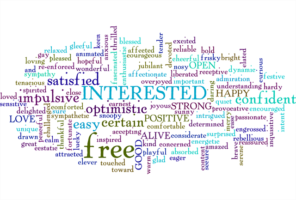
What’s in a word? During my work on a recent PortMA project, the word “sustainable” came up a number of times. I have thought about the word ever since. It is significant in my approach to the footprint I leave on this earth. How respondents interpret a single word like “sustainable” can affect the nature of the results.
What Does “Sustainable” Mean to You?
When asked how important it is that a product is sustainable, responses varied widely.
Some said that sustainability means the production process is environmentally friendly. Some thought that it describes their ability to use the product for long periods of time. Others saw it as able to enhance their personal health.
How people perceive words says a lot about their worldview. This can have interesting implications when interpreting campaign data.
What Does a Word Mean to You?
My experience with “sustainable” prompted me to think about how we re-appropriate or adapt words to mean something different than their original meanings. What’s hip and trendy on Pinterest or some celebrity’s blog is becoming more important than maintaining the precision and clarity of our words. Researchers must have a heightened awareness that this transformation is dominating the discourse culturally, politically and socially.
What Does a Word Mean in Research?
Political correctness is playing havoc with the meaning and impact of words. The words we use are increasingly taking on other meanings. In a recent study, some participants found one particular word hilarious in relation to the brand. Others were equally offended by it.
The reality of our culture today is that words are invented, re-interpreted, blacklisted, and misappropriated. This practice is spreading like wildfire. We can’t do anything to stop it. Many have tried, but failed. We have to keep pace with these nuances, regardless of whether we understand or agree with them. Researchers are in a unique position to explain these issues to our clients. They need to consider carefully what people may really be saying before they make actionable decisions. Our responsibility is to provide clear, accurate, and precise results to them.
